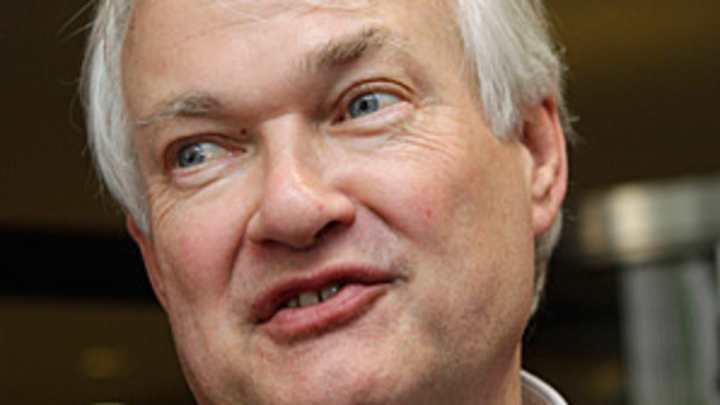NHL's new CBA offer a non-starter

Nice to see the league make the effort. That they backed off their initial stance has to be seen as a positive.
But were the changes in this new offer "meaningful" as Commissioner Gary Bettman stressed in a post-meeting press briefing?
Sure... if you believe that the NHL's first proposal -- the one that slashed the player's take from 57 to 43 percent while redefining Hockey-Related Revenue (HRR), crushing free agency and arbitration rights and extending the length of entry-level contracts, among other things -- was a serious bargaining position.
It wasn't, of course. That was a bully's wish list, a chance for the players to choose getting beat up, having their lunch money stolen and getting hung up by their underwear from a peg in the girls' locker room all at the same time.
From the perspective of the players it was a non-starter. And while it would be nice to think otherwise, so was Tuesday's offer. After Wednesday's session, NHLPA boss Donald Fehr told the assembled media that the players had asked some questions and gotten a few things cleared up, saying, "We want to work on a proposal and respond on the NHL one. Hopefully tomorrow."
He added that the two sides still have "quite different" ideas about the revenue sharing issue.
Is there movement? Sure. Instead of a full-on frontal assault from the owners, this is more like a flanking maneuver. The end result, though, remains the same.
DATER: Lockout timeline: 2004 vs. 2012
According to multiple sources, the new proposal features a six-year term.
That's the easy part. After that, the math gets a little dense. And remember, it's all about the math.
Next season, the players would receive a 51.6 percent share of HRR. The cut would drop to 50.5 percent and 49.6 percent the following two seasons. For the final three years, the split would be 50/50.
On the surface, those numbers look pretty fair, especially when you consider that the players would also get a share in any revenue growth that exceeded 10 percent in each of the first three years. But then you remember that the term "Hockey-Related Revenue" is being redefined essentially, the owners have decided to bake a smaller pie from which the players will get their slice.
HACKEL:What is Hockey Related Revenue?
And then there's this: those percentages over the first three years come with the caveat of a fixed cap that is detached from HRR. In 2012-13, it would be set at $58 million, then rise to $60 million and $62 million over the following two seasons.
DATER: Goodenow's warning coming true
The players had a similarly delinked three-year starting period, but their fixed numbers were considerably higher: $69 million in the first year, followed by $71 million and $75 million.
There's traction on the concept, but the distance between the numbers is staggering.
Remember, under the current CBA, the cap was projected at $70.2 million for the 2012-13 season. At this new rate, 16 teams -- more than half the league -- would be over the $58 million proposed cap.
There was no mention of a salary rollback, like the 24 percent the players had to cough up in the 2005 settlement, but there's still a significant haircut to be taken. They can call it escrow, but by any name it means giant piles of money are being yanked back from the players. And so, despite Bettman's claim, this proposal is not different in any meaningful way from the first.
A new approach, sure, but it's not progress.
Bettman can suggest that revenue sharing "will not make or break" these negotiations, as he did in a post meeting press briefing yesterday. But since that's the main plank in the NHLPA platform, it illustrates that the two sides are not even close to speaking the same language.
The players are willing to take less money, but for their sacrifice they want a new system in place, a more effective revenue sharing model among the teams. The owners want to guarantee that they retain more revenue through a significant diminishment of salaries.
Is there any reason to expect that to change before Sept. 15? Hardly. The reality is that the owners have no motivation to make "meaningful" concessions at this point.
They'll continue to play their shell game, moving the ball around the table in a way that makes their offer seem more palatable to the public while the clock winds down and the pressure begins to weigh on the union.
The NHLPA took the offer home last night to mull over. It's likely that much "meaningful" laughter ensued, but they have to know they're up against it. Their response when the two sides meet again today will be telling.
